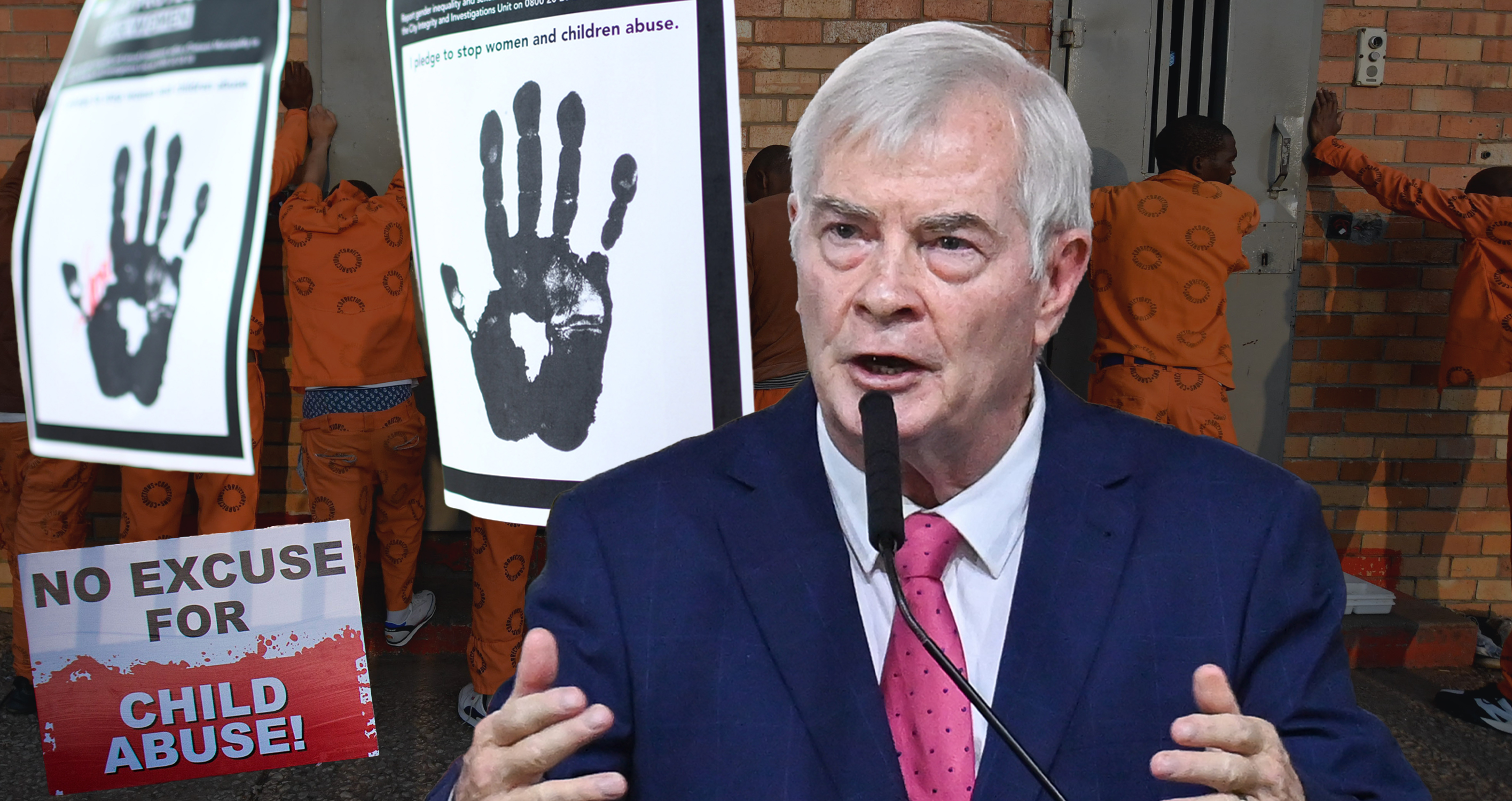Experts are calling for urgent reform to the country’s parole system, where reoffending rates have risen to 97%. What was meant to help offenders rebuild their lives is now seen as one of the weakest links in the criminal justice chain.
Created under the 1998 Correctional Services Act to focus on rehabilitation, the parole system is now crippled by delays, poor oversight and little to no qualified professionals, who are meant to make life-changing decisions about the release of prisoners.
Speaking at the National Parole Review Summit in Pretoria this week, criminologist and former Department of Correctional Services official Dr Marelize Schoeman urged the government to move beyond “lip service” and standardise how the system measures reoffending, among other matters.
The process to review the parole system began in 2015, when then Minister of Justice and Correctional Services Michael Masutha appointed a task team to “re-engineer” the system. Ten years later, the proposed changes have not yet been tabled in Parliament.
“You cannot manage what you cannot measure. And if you can’t measure it, you can’t improve it,” Schoeman warned.
/file/dailymaverick/wp-content/uploads/2025/07/Screenshot_20250731_080611_com_hihonor_hnoffice_AppFrameActivity_PG03.jpg)
He pointed out that “recidivism” remained defined on an “ad hoc basis” across the justice system, creating, as he said, a “fruit salad concept”.
The shortages of professionals in the country’s parole boards are stark, with just 78 psychologists serving the entire prison population, leaving a ratio of one to 2,700 inmates. This is alongside 591 social workers.
In September 2024, Daily Maverick reported that the Department of Correctional Services employed just one criminologist in the entire country to assess parole applications for life-sentenced prisoners.
Schoeman argued that the state needed more trained specialists and “evidence-based therapeutic programmes rather than non-therapeutic awareness sessions”.
He also called for stronger community partnerships and practical reintegration support, such as skills training, financial assistance and housing for parolees without a monitorable address.
“Rehabilitation should not be a last-minute add-on before parole or release, but a sentence-long process starting from day one,” Schoeman said.
His sentiments were echoed by delegates at the summit, who suggested that a separate Parole Act could help combat inefficiencies in the system by ensuring boards included professionals who could expertly assess the risk of reoffending.
The new Act would allow the boards to be expanded to include psychologists, criminologists and social workers, providing greater expertise in decision-making, a suggestion that was widely welcomed.
‘Threat to the safety of society’
/file/dailymaverick/wp-content/uploads/2025/07/AV_00057740.jpg)
Correctional Services Minister Pieter Groenewald appeared to endorse the suggestion and conceded that there were “strengths, but also challenges” in the parole system in its current form.
“What is the test for successful integration? I see it as whether or not a person will re-offend again.”
Giving an insight into recent statistics, Groenewald was blunt about the stakes. “In the previous year, the country had 209 parolees who committed murder while they were on parole. It also recorded 330 parolees who reoffended and committed rape. And that is actually a threat to the safety, not only of women and children, but to society and communities of SA.
“Therefore, our responsibility is to ensure we do everything to make South Africa a more safe place for each and everyone,” Groenewald said.
The decision on whether to grant parole was almost a “balancing act” that could not ignore victims of crime, he said.
The way officials make decisions about serious offenders has been under scrutiny for years. There have been numerous cases in which individuals convicted of grave crimes, including child rape, were granted parole, and in other instances denied.
Read more here: Rape survivor Alison Botha’s attackers back behind bars after minister revokes parole
/file/dailymaverick/wp-content/uploads/2023/07/becs.jpg)
The case of Frans du Toit and Theuns Kruger, who were sentenced to life for their brutal attack and rape of Alison Botha in Port Elizabeth (now Gqeberha) in 1997, made headlines earlier this year when they were briefly granted parole, only for Groenewald to later reverse the decision and send them back to prison.
“We cannot just put people on parole to address the overcrowding problem, we have to take the responsibility to ensure that if we put people on parole, that the community will be safe because it is the victims who actually pay the ultimate price,” he said.
The country’s prison population is staggering, according to forensic psychophysiologist Ben Lombard, who said it stood at 157,056 in March 2023, plagued by overcrowding, understaffing, gang violence and court backlogs.
Why do parolees reoffend?
Experts point to several factors, including a lack of employment opportunities, difficulties being accepted back into their communities, and the stigma of having a criminal record.
Meanwhile, according to Magda Reynolds, business and development manager at Nicro, the National Institute for Crime Prevention and the Reintegration of Offenders, among the main drivers of high reoffending rates was the heavy burden placed on parole boards, including that they did not always receive the necessary or appropriate reports and information to make informed decisions.
Read more here: Calls for urgent overhaul of parole system following disturbing crimes against children
Between punishment and rehabilitation
Prof Kevin Sibanyoni described the country’s parole process as caught between “being punitive and rehabilitative”.
“On the one hand, it subscribes to the retributive principle that punishment should be served in full; on the other, it is expected to facilitate rehabilitation, leading to reintegration into society through parole processes,” Sibanyoni said.
In instances where parole is granted too early, that is often viewed as undermining justice, while delays worsen overcrowding and weaken rehabilitation. The balance between victims’ rights and offenders’ rights remains fraught.
To mitigate against this, Sibanyoni recommended expanding parole boards to include psychologists and criminologists, electronic monitoring for high-risk offenders, greater victim involvement and an open parole system with media and observer access.
Ultimately, new legislation should be enacted to govern the parole process, he said.
Delegates shared their personal encounters with re-offenders, calling for a dedicated Parole Act to bring “uniformity, certainty, transparency and greater community and stakeholder trust”.
“Large percentages of parolees are not adequately monitored, and the SA Police Service does not have a system to track parolees’ whereabouts,” a delegate said.
Throughout the summit, experts argued that parole should reflect restorative justice and ubuntu. But without legislative reform, the system risks staying trapped between rhetoric and reality. DM





 Illustrative image | Prisoners at St Albans Prison. (Photo: Gallo Images / Die Burger / Lulama Zenzile) | Minister of Correctional Services Pieter Groenewald. (Photo: Gallo Images / Jeffrey Abrahams) | Gender-based violence posters. (Photo: Gallo Images / Darren Stewart)
Illustrative image | Prisoners at St Albans Prison. (Photo: Gallo Images / Die Burger / Lulama Zenzile) | Minister of Correctional Services Pieter Groenewald. (Photo: Gallo Images / Jeffrey Abrahams) | Gender-based violence posters. (Photo: Gallo Images / Darren Stewart)